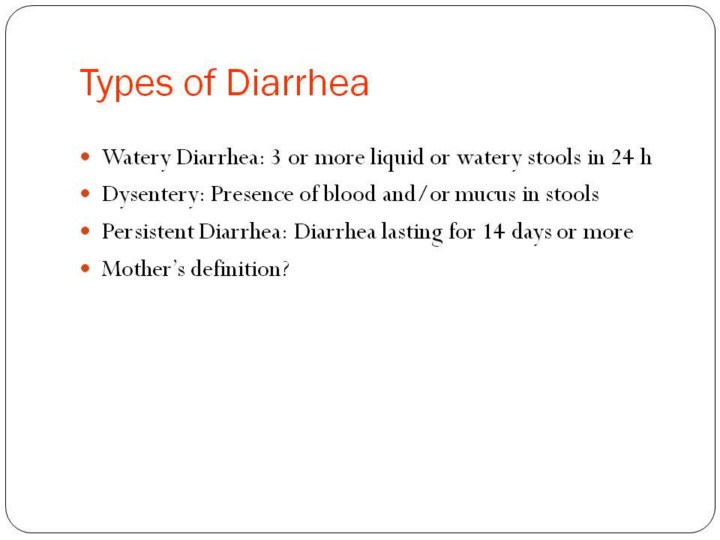 |
The World Health Organization defines diarrhea as the passing of liquid or
watery stools at least 3 times in a 24-hour period. However, it is the
consistency rather than the number of stools that is important. Frequent
passing of formed stools is not diarrhea.
Breastfed babies normally passes loose or pasty stools. The mother can tell
if her baby has an abnormal stool. We call it “mother’s definition”.
If stools contain blood or mucus, it is called dysentery. If diarrhea
persists for 14 days or longer, it is called persistent diarrhea.
|
